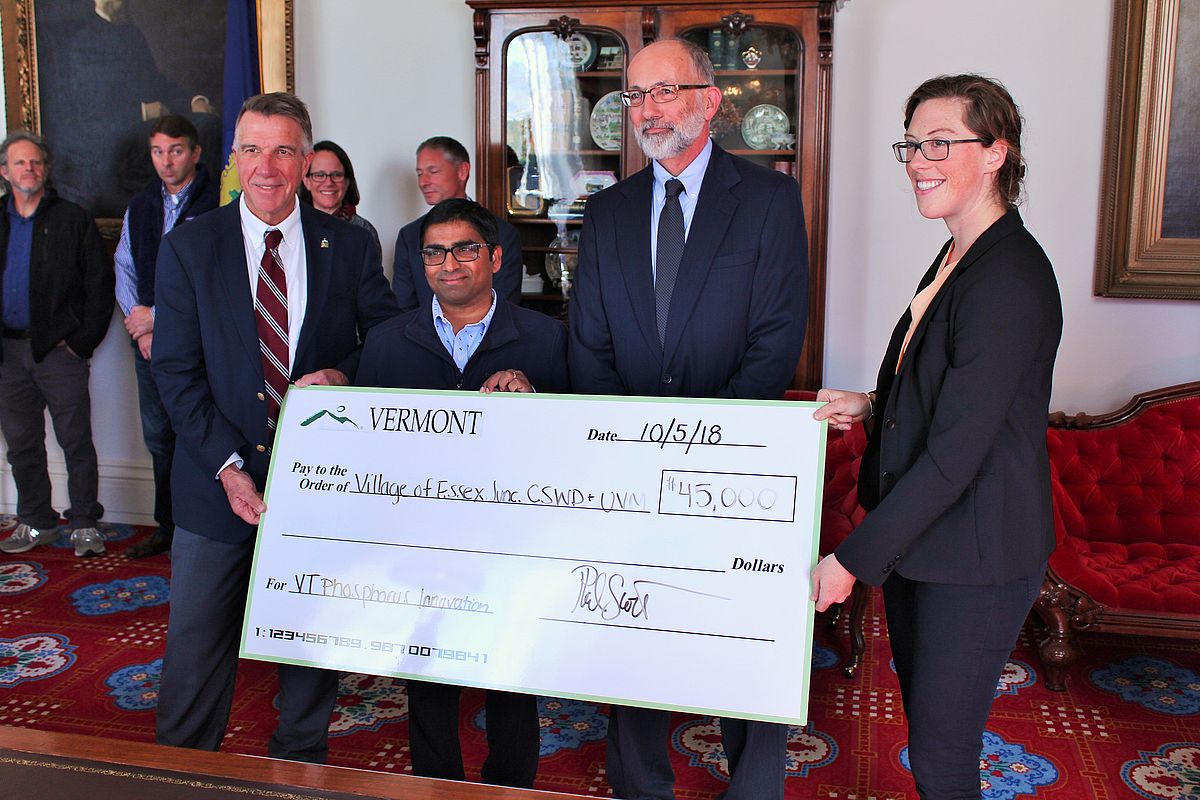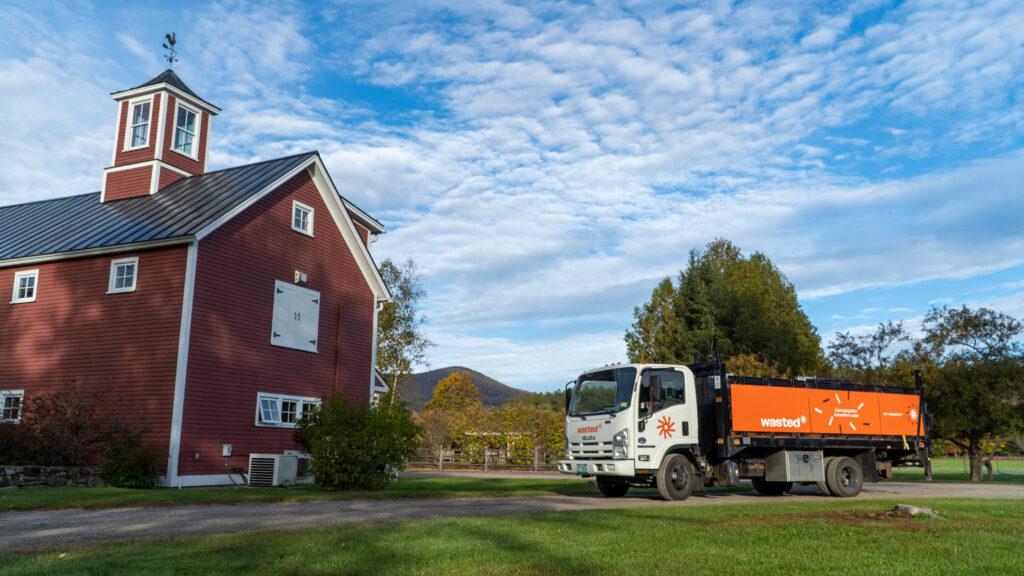Pilot Programs
Vermont Phosphorus Innovation Challenge
The Challenge was announced in February 2018 as an X-Prize style competition to harness creative solutions to address phosphorus pollution in Vermont. VPIC builds on our ongoing work to install conservation measures and best management practices to reduce phosphorus losses from farms and in stormwater runoff from developed land. The University of Vermont, the City of Essex Junction, Chittenden County Solid Waste District, and Efficiency Vermont were selected as one of the six groups to receive funding.
Together, we developed PePhlo (pronounced p-flow), a mobile, flexible, and scalable solution for Phosphorus capture and removal. PePhlo applications focus on reduced installation and operational costs without the investment needed for conventional Phosphorus removal approaches. PePhlo is viable on a small-scale application because it uses an innovative application of pipeline descaling technology as a means of enhancing crystalline Struvite generation and Phosphorus removal. The collected Struvite can be processed as a fertilizer resource. The immense success of PePhlo has resulted in subsequent funding to finalize the PePhlo technology and fabricate a portable unit capable of being transported to other wastewater treatment facilities.

Wasted* is a new Williston based portable-toilet company looking for sustainable solutions to human waste management. Currently they rent out portable toilets that separate the urine from the solids and then recycle the urine as nutrient rich fertilizer to farms in southern Vermont. Their mission is to “catalyze the global transition to circular sanitation and change the way people think about waste.”
We’ve partnered with Wasted* for the next two years to pilot their biosolids management process called pyrolysis. The pyrolizer takes our dewatered biosolids and using heat, breaks them down into biochar. Biochar is not simply a byproduct but rather a nutrient rich form of charcoal that can be used as fertilizer. Pyrolysis also has the potential to remove PFAS, chemical compounds known as ‘forever chemicals,’ from human waste. This allows the biochar to be a safe fertilizer and keeps PFAS out of our local waterways.

